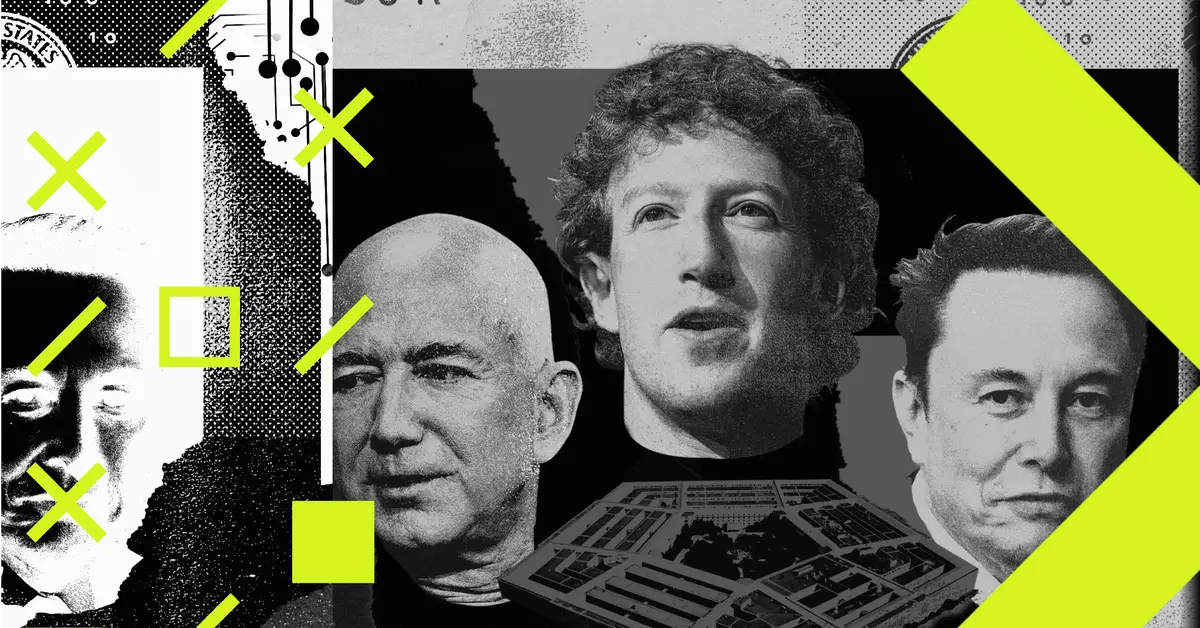The dynamic interplay between government, technology, and personal expression on the internet has reached a new and fraught juncture, particularly under the backdrop of the second Trump administration. This time represents a shift not merely in policy but in how the very essence of free speech is conceived in the digital age.
In recent weeks, major tech companies like Meta and TikTok have navigated a tumultuous political climate, increasingly caught in the crossfire of state regulations and corporate maneuvers. As the Trump administration embarks on its new agenda, the implications of these changes extend far beyond boardrooms and congressional hearings. For instance, Meta’s revision of its hate speech guidelines to allow a greater range of slurs has sparked significant backlash and discussion regarding the ethical responsibilities of tech giants. This decision can be understood as part of a broader calculus to appease and align with interests that are increasingly intertwined with political outcomes.
The abrogation of certain content moderation standards raises critical questions about who truly governs online expression. Recent controversies, including the banning and unbanning of TikTok, reveal a precarious balancing act between user safety, corporate legitimacy, and political favor. This interplay has a direct impact on the user experience, as everyday social media interactions become embedded within larger geopolitical strategies.
The phenomenon of “gangster tech regulation” captures the raw essence of this modern conflict. As businesses adapt to the whims of political leaders, a troubling symbiosis emerges. Tech moguls like Mark Zuckerberg appear to be trading the integrity of their platforms for political asylum and backing. In Europe, the Digital Services Act aims to regulate these giants more stringently, which raises concerns about whether U.S. lawmakers will intervene on Meta’s behalf as political alliances solidify. This scenario portrays a landscape where compliance and favor from influential politicians become lucrative commodities, effectively reshaping the rules of engagement.
What remains profoundly significant is how this situation reframes the conversation around free speech. The ethical dilemmas posed by this form of corporate governance—absent clear and fair processes—open avenues for corruption and ethical breaches that could ultimately undermine the principles of democracy. The notion that large companies might leverage their influence to obtain preferential treatment from government entities presents a daunting challenge to the foundational concepts of a fair and transparent internet.
For individuals utilizing these websites for self-expression and communication, the ramifications of these shifts are profound. As Meta rolls back oversight in favor of crowdsourced content moderation, users become participants in an unregulated experiment that could foster toxic environments rife with harmful rhetoric. This approach to content moderation raises concerns about the long-term viability of online spaces as conduits for diverse and balanced dialogue.
Furthermore, the actions taken toward TikTok, particularly the suggestion that the U.S. government might hold a stake in the company, confront users with a troubling dilemma: Can an app that is partly owned by the government truly remain neutral? The potential merging of corporate interests with governmental power not only complicates the regulatory framework surrounding these platforms; it also poses existential questions about who has the final word on what constitutes free speech.
The current escalations present a unique opportunity for collective reflection on the purpose and operation of large tech platforms. As conflicting interests begin to unravel the fabric of online dialogue, how can users reclaim and reshape the narrative to ensure their rights and aspirations for expression? The path forward requires an informed and engaged citizenry willing to hold both government and corporations accountable for their roles in shaping the digital landscape.
Ultimately, this evolving situation challenges us to consider whether we should accept an ever-narrowing definition of free speech defined by corporate and governmental collusion. Regular users will play a pivotal role in demanding more just and equitable frameworks for the discourse that unfolds on these platforms. Looking ahead, as the domains of technology and governance continue to intersect, it is vital that the principles guiding free expression remain robust and adaptable to the world that lies ahead. In the face of these challenges, clarity, vigilance, and advocacy have never been more essential.


Leave a Reply